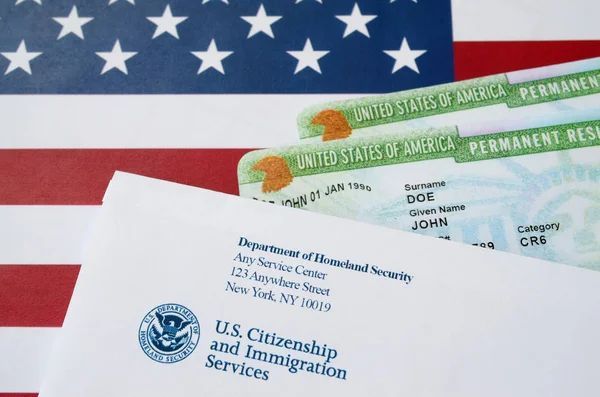🗣️ Fluent in English, Spanish & Portuguese 🌍
Understanding New U.S. Immigration Policies Together
Latest U.S. Immigration Policies Under the New Administration
Understanding the Shift in Immigration Policies
The landscape of U.S. immigration has undergone significant changes under the new administration. With a focus on reforming outdated policies and addressing the complexities of immigration, the administration aims to create a more equitable and efficient system. This blog post will explore the latest immigration policies, their implications, and what they mean for immigrants and their families. The changes reflect a broader commitment to human rights and the recognition of the contributions that immigrants make to society. As the administration seeks to balance security concerns with compassion, it is essential to understand the nuances of these policies and how they may evolve in the future.Key Changes in Immigration Policies
Several key changes have been implemented that reflect the administration's priorities. Here are some of the most notable updates:- Pathway to Citizenship: A proposed pathway to citizenship for undocumented immigrants who meet specific criteria has been introduced. This includes individuals who have lived in the U.S. for a certain number of years and have no criminal record. This initiative aims to provide stability and security for those who have built their lives in the U.S.
- Family Reunification: The administration is prioritizing family reunification by reducing the backlog of family-based visa applications and increasing the number of visas available. This change is crucial for maintaining the integrity of families and ensuring that loved ones can support each other.
- Refugee Admissions: The cap on refugee admissions has been raised, allowing more individuals fleeing persecution to seek safety in the U.S. This policy shift underscores the country's commitment to humanitarian efforts and providing refuge to those in dire need.
- Deferred Action for Childhood Arrivals (DACA): Efforts are underway to strengthen and protect DACA, ensuring that Dreamers can continue to live and work in the U.S. without fear of deportation. This initiative recognizes the contributions of young immigrants who have grown up in the U.S. and are integral to the fabric of society.
- Work Permits for Asylum Seekers: New policies are being implemented to expedite work permits for asylum seekers, allowing them to support themselves while their cases are processed. This change not only aids individuals in their pursuit of a better life but also benefits the economy by allowing these individuals to contribute their skills and talents.
Impact on Immigrants and Families
The changes in immigration policies have far-reaching implications for immigrants and their families. Here are some of the key impacts:Increased Opportunities for Legal Status
The proposed pathway to citizenship offers hope to millions of undocumented immigrants. By providing a clear route to legal status, individuals can contribute more fully to society and the economy. This opportunity can lead to increased job security, access to education, and the ability to participate in civic life, including voting and community engagement.Strengthened Family Ties
With a focus on family reunification, many families separated by immigration policies can look forward to being together again. This change not only strengthens family bonds but also supports the emotional well-being of individuals. Families that are united can provide mutual support, share resources, and foster a sense of belonging, which is essential for mental health and stability.Enhanced Economic Contributions
By allowing asylum seekers to obtain work permits more quickly, the administration is enabling them to contribute to the economy. This not only benefits the individuals but also the communities they join. Asylum seekers often bring diverse skills and perspectives that can enhance local economies, fill labor shortages, and drive innovation.Challenges Ahead
While the new policies represent a significant shift, challenges remain. Some of the key challenges include:- Political Opposition: Immigration reform often faces political hurdles, and the administration may encounter resistance from lawmakers who oppose these changes. This opposition can slow down the implementation of policies and create uncertainty for immigrants.
- Implementation Issues: Ensuring that new policies are effectively implemented can be a complex process, requiring coordination among various government agencies. The success of these policies depends on the ability of agencies to work together and allocate resources effectively.
- Public Perception: Changing public perception about immigration is crucial. Misinformation and negative stereotypes can hinder progress. Efforts to educate the public about the benefits of immigration and the contributions of immigrants are essential for fostering a more inclusive society.
Conclusion
The latest U.S. immigration policies under the new administration mark a significant step towards a more inclusive and fair immigration system. While challenges remain, the focus on family reunification, pathways to citizenship, and support for asylum seekers reflects a commitment to addressing the needs of immigrants and their families. As these policies continue to evolve, it is essential for individuals to stay informed and seek guidance on how these changes may affect their immigration status. The ongoing dialogue around immigration will shape the future of the U.S. and its role in the global community. For personalized assistance and to navigate the complexities of immigration law, reach out to schedule a consultation with Quattrochi, Torres and Taormina here. Disclaimer: The information provided in this blog post is for general informational purposes only and does not constitute legal advice. The content is not intended to create, and receipt of it does not constitute, an attorney-client relationship. No action should be taken based on the content of this blog post without first consulting qualified legal counsel. While every effort has been made to ensure the accuracy and completeness of the information, Quattrochi, Torres & Taormina, P.A. makes no warranties or representations as to the accuracy, completeness, or suitability of the information for any purpose. Quattrochi, Torres & Taormina, P.A. will not be liable for any errors or omissions in this information nor for the availability of this information. Any reliance you place on such information is strictly at your own risk. Quattrochi, Torres & Taormina, P.A. disclaims any and all liability with respect to actions taken or not taken based on the contents of this blog post to the fullest extent permitted by law. This post does not cover every possible situation, and you should always consult with an attorney or the relevant agency before taking any action. By using this site and relying on the information provided, you agree that Quattrochi, Torres & Taormina, P.A., its partners, employees, and affiliates, shall not be held liable for any direct, indirect, incidental, special, or consequential damages or losses, whether in contract, tort, or otherwise, arising out of or in connection with the use of the information contained in this blog post.
By Juan Torrico
•
January 16, 2025
Discover the latest updates on Temporary Protected Status (TPS) as new countries are added to the list, providing crucial support for individuals facing crises. Learn about eligibility, application processes, and the benefits of TPS to secure your future in the U.S.
CONTACT US
950 S. Winter Park Dr., Suite 207
Casselberry, FL 32707
PRACTICE AREAS










